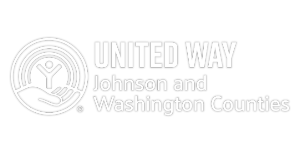
_0.jpg)
United Way of Johnson & Washington Counties strives to be a model of diversity and inclusion, reflecting the many faces, cultures and walks of life that proudly make up our communities.
We respect, value and celebrate the unique attributes, characteristics and perspectives that make each person who they are.
We also believe that bringing diverse individuals together allows us to collectively and more effectively address the issues that face our communities.
To value diversity is to respect and appreciate race, religion, skin color, gender, nationality, language differences, cultural differences, sexual orientation, gender identity, physical, mental and development abilities or disabilities, age, socioeconomic status, work and behavior styles, parental status and the perspectives of each individual, as shaped by their nation, culture and experiences.
To be inclusive is to leverage diversity by bringing together unique individuals and organizations to collectively impact the issues that face our communities.
To be a diverse and inclusive system is fundamental to achieving our mission and goals in education, income and health and is at the heart of what it means to live united.
To achieve a strong, equitable community where everyone is empowered to succeed, we must address existing structural and systemic inequities in our communities through a human-centered approach.
Our commitment to diversity and inclusion rests on certain principles that influence our decision-making, guide our interactions with each other and others, and determine the measure of our success.
We will continue to seek respectful relationships and partnerships that align with achieving common goals. Focused on inviting all people, we have the opportunity and responsibility to value and respect diverse perspectives, ideas and beliefs.
We strive to continually improve our understanding and application of inclusion and equity to address racial disparities in the communities we serve alongside our partners and within our strategies and investments.
It is our aim, therefore, that our Board of Directors, staff, volunteers, partners, strategies and investments reflect these core values.
Effective Date: October 20, 2011
Revised Date: December 19, 2013
Revised Date: March 28, 2019
